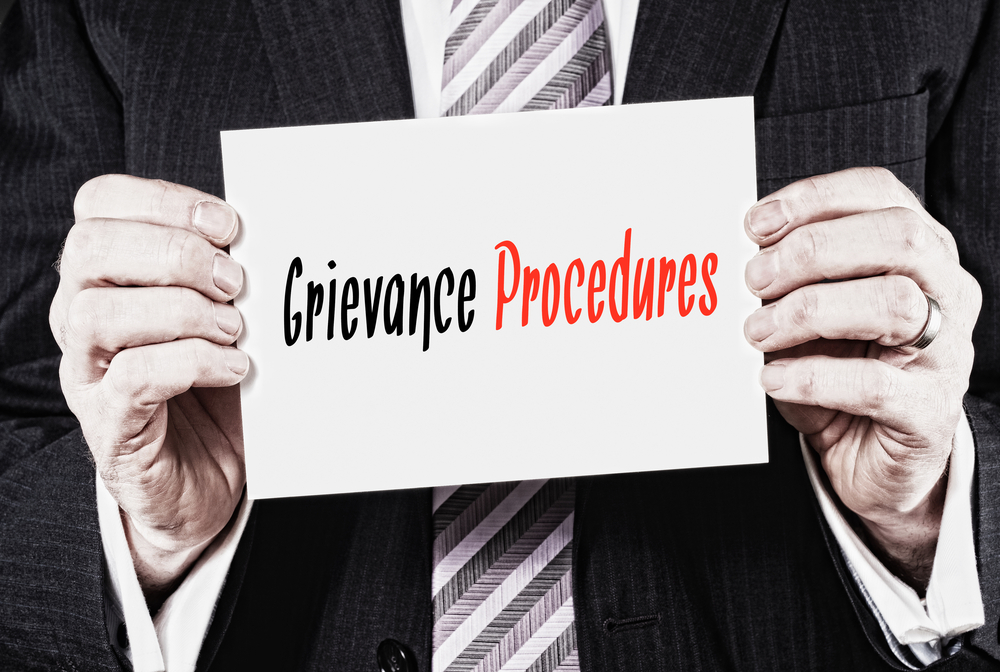Grievances: HR guide

Introduction
When dealing with grievances it’s important for employers to follow correct procedures.
The Acas Code of Practice on disciplinary and grievance procedures
Employers need to be aware of the Advisory, Conciliation and Arbitration Service (Acas) Code of Practice on disciplinary and grievance procedures (the Code). A failure to follow the Code doesn’t make an organisation liable to proceedings. However, employment tribunals must take the Code into account when considering whether an employer has acted reasonably or not. Tribunals are also able to adjust awards made in relevant cases by up to 25 percent for unreasonable failure to comply with any part of the Code.
There are two separate guides, too: the Acas guide on discipline and grievances at work and the Acas guide to conducting workplace investigations.
Informal process
Employers and employees are often able to resolve complaints informally. It’s therefore sensible to make it clear to employees that informal resolution should be considered before raising formal grievances.
An employee could be uncomfortable about trying to resolve their complaint with the person that they’re complaining about. Human resources therefore needs to offer guidance and act as intermediary, where appropriate.
In many cases a complaint could be resolved amicably, avoiding the formal grievance route. The parties involved will then have a better chance of maintaining a good relationship going forward.
Investigation
If it’s not possible to resolve a complaint, informally, and the employee raises a formal grievance, the employer should carry out an investigation, obtaining as much relevant information as possible. When investigating a grievance the investigator shouldn’t have had any personal involvement in the matters being investigated. The Acas guide to conducting workplace investigations provides helpful recommendations on the appointment of the investigator, meetings, evidence and completing the investigation report.
Confidentiality is important, too, and applies to the person conducting the grievance and to witnesses. Witnesses should be told not not to discuss the investigation with other employees.
Grievances and hearings
The Code states that a formal meeting should be held without delay and that all parties should make every effort to attend the meeting. The Code also refers to the statutory right be accompanied by a fellow worker, a trade union representative or an official employed by a trade union. Although the right to be accompanied doesn’t apply to all types of complaint, it’s usual practice to allow companions to attend grievance hearings. The person who has investigated the grievance may also hear the grievance.
At the grievance hearing the employee should be given an opportunity to explain their grievance in detail and how the employee wishes the grievance to be resolved. The employee may want matters to be investigated, which were not investigated previously. The employer might then need to adjourn the grievance hearing pending further investigations.
The Code states that decisions should be communicated to the employee, in, writing, without unreasonable delay and, where appropriate, should set out what action the employer intends to take to resolve the grievance. The employee should be given a right to appeal against the decision.
Appeal
The Code states that appeals should be heard without unreasonable delay; there is the same right to be accompanied; and the appeal should be dealt with impartially and wherever possible not by the person involved in the original decision. The person hearing the appeal should also be more senior than the original decision maker, according to the Acas guide on discipline and grievances at work. In small businesses there may be limited options for senior personnel to hear appeals. In some cases it may be appropriate for a person from outside the business to conduct the appeal.
Mediation
Where it’s not possible to resolve a grievance issue in the workplace the parties should consider using an independent third party to help resolve the problem. This could be an internal mediator (with no involvement in the grievance issue) or an external mediator.
This guide is intended for guidance only and should not be relied upon for specific advice.
If you need any advice on grievances or have other employment law queries please do not hesitate to contact me on 020 3797 1264.
Do check mattgingell.com regularly for updated information.




